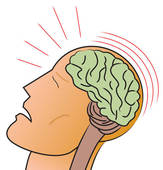Students will examine philosophical assumptions of major counseling theories and apply empirically verified modalities and techniques that can be faithfully housed within the Christian tradition. Students will learn to administer formal and informal assessment tools, as well as adopt counseling theories and clinical interventions which will enable them to competently address the religious/spiritual dimension of client functioning in culturally and ideological diverse treatment settings.
- Course Instructor : David Collins
This course provides the student with the necessary skills to professionally evaluate the current research in the field of counseling. Topics include research strategies, scaling and coding, internal and external validity, and program evaluation. Prerequisite: CNS 504.
- Course Instructor : Amanda Prugar
This course provides the student with the necessary skills to professionally evaluate the current research in the field of counseling. Topics include research strategies, scaling and coding, internal and external validity, and program evaluation. Prerequisite: CNS 504.
- Course Instructor : Amanda Prugar
The purpose of this
course is to familiarize the students with the study of
mental disorders and advanced clinical assessments. The
student will learn how to systematically obtain important
client demographic information, evaluate drug and
alcohol issues, and assess for other mental health
disorders utilizing clinical instruments that allow for
effective information gathering. This course will enable
students to better evaluate mental health disorders
utilizing some of the most prominent assessment
instruments found in the clinical and research realms.
Finally, students will learn how to administer formal and
informal assessment tools, as well as integrate various
counseling theories (i.e., CBT, MI, etc.) and clinical
interventions which will enable them to effectively
address the clinical picture of client functioning based on
empirical evidence. Summer semester.
- Course Instructor : Deborah Schratz

This course addresses the nature of crisis and trauma from the intake interview through evidenced-based best practices for treatment models. It is designed to introduce students to the complex issues surrounding both crisis and trauma, including trauma-informed care, trauma awareness (types, characteristics of, and individual and sociocultural features), trauma reactions, trauma-related symptoms, and co-occurring disorders, screening and assessment, treatment issues, and trauma-specific treatment models. The effects of trauma on the brain, body, and the mind will be discussed. Psychological First Aid, the ethics of caring for trauma survivors, secondary trauma, and the importance of clinical supervision are also discussed. Students will be required to participate in several role plays and demonstrate competency in crisis management and suicide assessment as well as complete the Psychological First Aid training and receive certification.
- Course Instructor : Trevor Stiffler